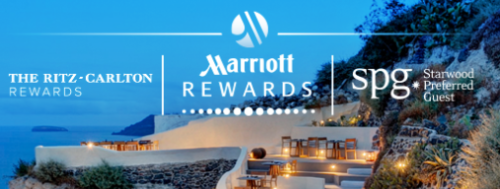Marriott CEO Arne Sorenson shared some interesting information last week during his talk at the IHIF hotel conference in Berlin last week. He noted that Starwood was expanding their brands at a much slower pace than Marriott and that those brands would now align with Marriott’s faster expansion pace. Using Aloft as an example, he said it took Starwood 10 years to get Aloft to 100 hotels globally, while Marriott grew AC Hotels in the US alone to the same number since beginning the brand’s North American expansion in only 2014.
“We think with Aloft we can really ramp it up and grow them at a faster pace than Starwood.”
How about this for growth…one of the 30 brands within the Marriott portfolio will open a new property on average every 15 hours in 2017!
The CEO said despite uncertainty, the company will focus on a big Starwood brand expansion throughout Europe. However, the biggest growth in Europe will come from budget brand Moxy, with plans to grow from today’s 1,000 rooms to 18,000 rooms by 2020.
What about further acquisitions or the creation of new brands? With only a 14-15% market share in the US, Sorenson doesn’t feel that Marriott is done growing!
“We don’t think we’ve grown to the point where we’re complete, we think we have a lot of growth ahead of us.”
The responses below are not provided or commissioned by the bank advertiser. Responses have not been reviewed, approved or otherwise endorsed by the bank advertiser. It is not the bank advertiser's responsibility to ensure all posts and/or questions are answered.

1 comment
it sounds like a lot, but keep in mind 4 bits of information that aren’t included in this figure :
1. Marriott-Starwood (let’s use M/S) combined, while being the largest lodging company globally, is less than 20% market share in terms of number of rooms. They’re nothing close to flooding the market excessively to depress RevPAR of competitors.
2. The global growth rate of travel (and lodging) is also strong, especially in certain emerging markets. This expansion may actually be in line with that expected growth.
3. There’s also an inherent rate of property attrition (property owners deciding they no longer want to be flagged by M/S), and this may be accelerated in the short term as owners witness too many competing properties within their locale as a result of the merger.
4. AirBnB is particularly popular among Millenials. M/S is simply doing their part to ensure they have a share of the pie of the future. It takes a lot of work to ensure the survival of a 90-year-old brand when the landscape is changing so rapidly.
(disclosure : ZERO affiliation to the corporation – these are entirely my personal views)